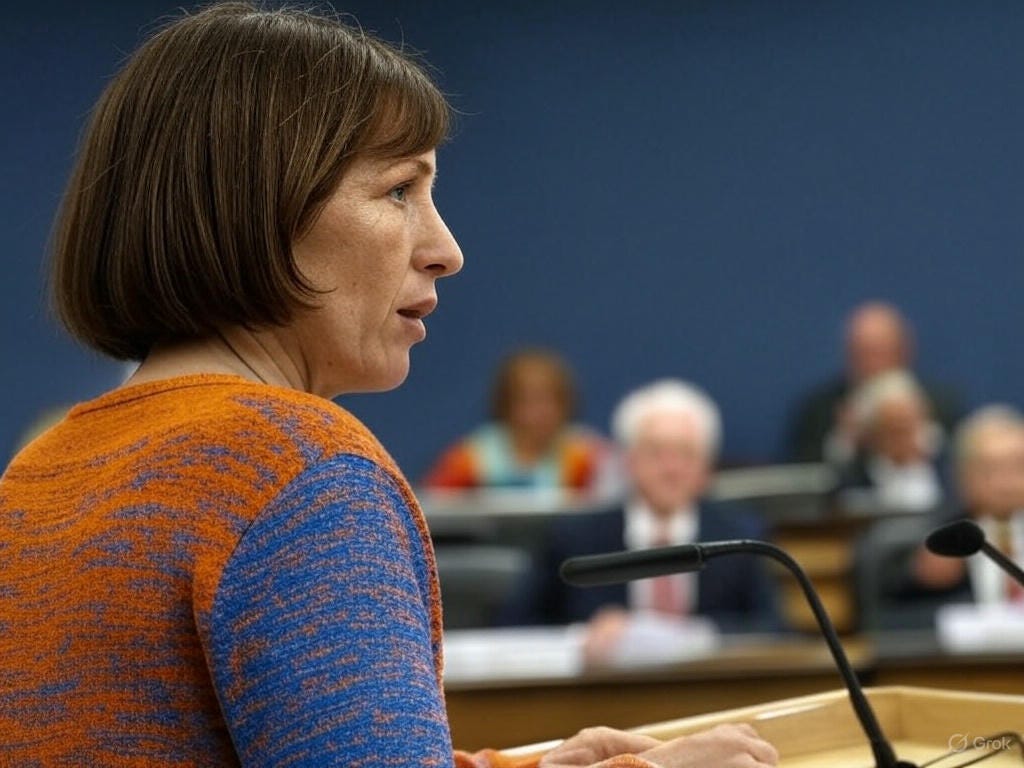INDIVISIBLE NARRATIVE CONTROL [2024]
FICTION: Carver Skeptic Told Not to Speak by NGO President [2024]
FICTION: Carver Skeptic Told Not to Speak by NGO President [2024]
Jen had always been a skeptic, the kind of person who questioned everything, especially the stories peddled by those in power. After moving to Minnesota in late 2023, she decided to dig deeper into the mechanisms of local governance, particularly around elections. She’d heard whispers about the League of Women Voters Minnesota (LWVMN) and its influence, so she paid the $60 membership fee to join, not out of allegiance, but to see what they were really about. Over the next year and a half, she attended two meetings, sifted through their glossy pamphlets, and subscribed to their email blasts, which she privately dubbed “propaganda.” To her, it was all the same tired narrative—vague calls for “democracy” and “voter access” that seemed to dodge the real issues, like transparency in election processes.
What intrigued her most was the League’s funding and connections. She learned through her own research that the LWVMN was a nonpartisan organization, at least on paper, focused on voter education and advocacy, but she couldn’t shake the feeling that there were deeper ties to partisan agendas. She’d heard rumors that Indivisible, a progressive activist network, operated as a silent branch of the League, though she couldn’t find hard evidence. What she did uncover was that Indivisible West Metro, a local chapter, was funded in part by grants linked to George Soros’s Open Society Foundations—a fact that raised her eyebrows, given their recent purchase of the West Carver local paper. Meanwhile, other Minnesota papers, including the Pioneer Press, had been scooped up by Alden Global Capital, a hedge fund notorious for gutting newsrooms. Many of these local papers, once lifelines of community communication, had shuttered their doors by the end of 2023, leaving a void that Jen saw as ripe for narrative control.
Her suspicions grew when she learned that Steve Simon, Minnesota’s Secretary of State and president of the National Association of Secretaries of State, was a member of a local League chapter as part of his “community involvement.” To Jen, it all smelled like a cozy network of influence, a battle for narrative supremacy where nuance was sacrificed for control, and inconvenient truths were buried. She couldn’t help but think of the Smith-Mundt Act, gutted under Obama in 2013, which had once barred domestic propaganda but now allowed media to twist reality with impunity. To her, the stakes were clear: if elections weren’t transparent, if the public couldn’t trust the process, then the government would never serve the people—only the lobbyists and elites.
In the fall of 2024, Jen saw her chance to push back. At a county commissioner meeting, the topic of election integrity came up, and she stood to speak. “I’m a member of the League of Women Voters,” she began, her voice steady, “and I’m here to advocate for hand-counting ballots and full transparency into absentee ballot boards. We need to ensure every vote is verifiable, not hidden behind machines or secretive processes.” Her mention of the League sent a ripple through the room. Heads turned, whispers started, and the commissioners exchanged glances. Jen sat down, satisfied that she’d rattled the cage.
Later that day, her inbox pinged with an email from the president of her local League chapter. “Dear Jen,” it began, “while we appreciate your engagement, we must clarify that you cannot state that you speak on behalf of the League of Women Voters. Our organization has strict policies on representation…” Jen’s blood boiled as she read on. “I never said I spoke for you!” she muttered to the screen. “I just said I was a member—which I am!” The email felt like a slap, a petty power play to silence her. She fired back a reply, clarifying her words and pointing out the absurdity of their assumption, but the incident only deepened her frustration.
As the weeks passed, Jen’s disillusionment grew. She watched as the West Carver, now under Indivisible’s ownership, churned out articles that echoed the same talking points she’d heard at League meetings—celebrations of “voter access” that ignored calls for transparency, and attacks on anyone questioning the system as “conspiracy theorists.” Meanwhile, the hedge fund-owned Pioneer Press had closed more local papers, leaving rural communities without a voice. To Jen, it was obvious: the battle for narrative supremacy was being won by those with money and connections, not by those seeking truth. She couldn’t understand why others didn’t see it—the way the media, the nonprofits, the politicians all seemed to be playing the same game, papering over cracks in a system that favored lobbyists over public servants.
But Jen wasn’t done. If anything, the email from the League president only fueled her resolve. “If we could just have real elections,” she thought, “elections where every step is transparent, where the people actually choose their leaders, then maybe we’d start to fix the rest. Maybe we’d get public servants, not puppets.” She knew the fight wouldn’t be easy, but she also knew she wasn’t alone. There were others out there, skeptics like her, who saw through the narrative and weren’t afraid to call it out. And that, she decided, was worth the $60 membership fee—if only for the chaos it caused at that one county meeting.
You are also welcome to buy me a kofi.


